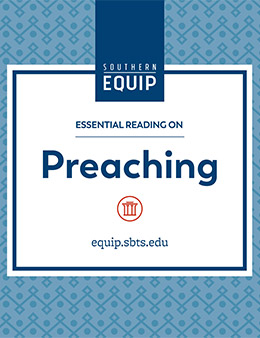What to expect when pastoring your first church
New pastors quickly find out that the church on the ground is different, messier, and more complicated than the church you envisioned in your head.
So you’ve walked down the aisle with hundreds of your colleagues after several years of blood, sweat and tears. You hold in your hand a sheet of paper that says you have “mastered” theology in such a way that qualifies you to lead, in some capacity, in church life.
In your mind, you have the ideal scenario for what local church ministry should look like. You’ve studied ecclesiology. You’ve debated theology. You’ve had multiple conversations with your classmates about leadership.
You even follow all of the right-thinking people on Twitter.
Messier than you thought
But now you are in your first ministry assignment. You are a youth pastor in a medium-sized church in the suburbs. You quickly find out that the church on the ground is different, messier, and more complicated than the church you envisioned in your head.
The youth group you envisioned in your head was filled with kids studiously disciplined by their parents, who every night sang hymns and did family worship, who responsibly managed their kid’s screen time, and who were eager participants in the ministry you would be leading.
The youth group on the ground, however, has a mix of kids from various family situations. Some are from very sheltered homes with parents who don’t trust new youth pastors and think the teaching should be “deeper.” Others are dropped off by parents hoping you can fix their kid, or at least get them to put their phone down long enough to grunt a few responses in reply to your weekly teaching. Others really, really like the hot new YouTube pastor who hangs out with Hillsong.
They don’t even read the reformers
Or maybe your first ministry assignment is as a senior pastor of a small, struggling church. You envisioned, in your first ministry, leading with the help of a robust elder board, made up of guys who read Calvin, together, on the weekends. You were going to launch a human trafficking ministry in your first year, an apprenticeship program in your second year, and, if all goes well, a church planting initiative in your third.
But the church on the ground seems vastly different than the church in your head. One of your elders wonders why you don’t let the congregation know who you think the antichrist is. The other thinks projecting music on the wall is a slippery slope toward Laodicea. And yet another wants to show Carman’s patriotic video from 1980 on the Sunday before the the Fourth of July. None of your ecclesiology books covered this.
I’m exaggerating these situations . . . but only slightly. The Carman thing really happened to me. The truth is, there is the church in your head, the ideal congregation you envision and there is the church on the ground, the real, flesh-and-blood collection of brothers and sisters you are called to serve.
Shepherd the ones God’s given you
There is no ideal church. I’m particularly challenged by the words of Peter in 1 Peter 5. He instructs to shepherd the flock of God, “who are among you.” In other words, don’t shepherd the people whom you wish you had in your church. Don’t shepherd the people you envisioned while studying in seminary. Don’t shepherd all the cool Christians on your Twitter feed.
We pastors are called to shepherd the people God brings us. This means we need to love and befriend the longtime, faithful church member who carries a Joyce Meyer study Bible to church every week. Or the sound guy whose family is a mess. Or the couple who folds the bulletins every week and also posts embarrassing political memes on Facebook.
God has called us to shepherd these people—the real, flesh-and-blood people we encounter in our ministries—not the perfectly formed, adequately resourced, competently discipled people we wish we had. And shepherd them we must, with care, with time, with gentle rebukes, with preaching that is used by God to move them along a path toward Christ-likeness.
This is the kind of ministry Jesus did while on this earth. Think of the rag-tag collection of men he chose as disciples. A political zealot. A political insider. An impetuous fisherman. An introspective thinker. He chose the doers and the pensive. He chose the weak and sometimes cowardly. He chose the faithless and the doubters.
Ministry changes us
By the way, these are the same kinds of people Jesus is choosing today as his disciples. This is who I am. This is who you are. The kingdom of God is rarely made up of the fit, but the feeble.
When we commit to this kind of ministry, we will not only see God move in small, but powerful ways over a long period of time, but we will also see God use our people to change our own hearts. The discomfort of messy and imperfect ministry sanctifies us. It chips away at our pride, our elitism, and our egos.
It’s good to be an imperfect, gospel-preaching church, a church that is less than our ideal. It’s good for us to have our preferences to rub up against reality. This doesn’t mean we shouldn’t lead with vision and purpose and intentionality, but our leadership should not be that of an impersonal CEO, a hard-charging, arrogant ranch hand, but that kind of ministry that gently, but firmly shepherds.
Because you will never pastor the church in your head, but you must pastor the church on the ground.




